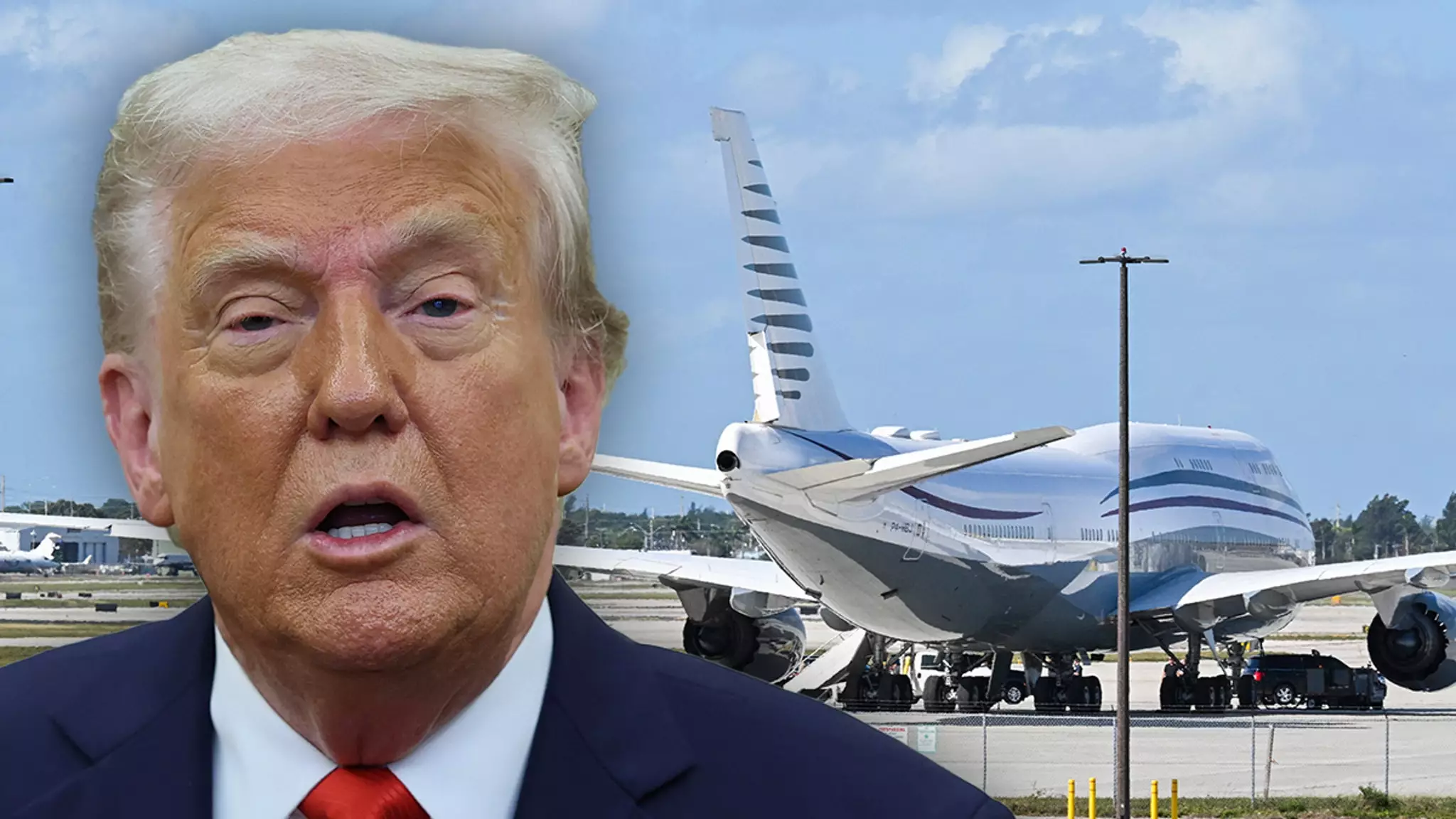Former President Donald Trump once again finds himself at the center of a media storm, this time over a purportedly extravagant gift from Qatar – a Boeing 747-8, touted as the largest passenger aircraft in the world. Valued at a staggering $400 million, this “flying palace” has been positioned by Trump as a temporary replacement for the aging Air Force One fleet. However, beneath the surface of this luxury lies a maze of legal complexities and ethical dilemmas that provoke a critical examination of international relations and presidential conduct.
Beneath the Surface: A Constitutional Quagmire
At first glance, the idea of a state-of-the-art aircraft serving the President might seem like a welcome addition to the Air Force One lineup. However, the acceptance of such a grand gift poses significant constitutional questions. The Constitution strictly prohibits the acceptance of gifts from foreign entities that could influence U.S. policy and action. Trump, in a statement on his Truth Social platform, attempted to downplay the gravity of this situation, presenting the plane as a mere “gift” to the Defense Department; yet, the optics of accepting such a lavish boon from a foreign power are deeply concerning.
The administration has argued that the aircraft is not a gift to an individual but rather a transfer of ownership to the U.S. military. This legal gymnastics leaves much to be desired in terms of transparency and ethical governance. The potential implications of such a deal could reverberate far beyond Trump’s tenure and may set a troubling precedent for future administrations when it comes to foreign diplomacy and influence.
The Price of Politics in the Age of Twitter
Trump’s penchant for bravado and hyperbole shines through in his latest social media antics. In his characteristic style, he has derided the Democrats as “World Class Losers,” accused them of trying to force taxpayers to “pay, TOP DOLLAR” for the plane, and engaged in rhetoric that seeks to dismiss legitimate concerns as mere political opposition. But, in an era where public figures are under constant scrutiny, such dismissive language distracts from the substantive issues at hand.
As Trump prepares to embark on a Middle Eastern trip, which includes a visit to Qatar linked to his son Eric Trump’s lucrative golf club deal, one cannot help but perceive the intertwining of personal interest and political maneuvering. The implications of business dealings influencing foreign relations add another layer of complexity to Trump’s presidency.
Is Luxury Worth the Cost of Democracy?
In an age where luxury and political influence can so easily intertwine, the introduction of this lavish aircraft begs the question: what is the true cost of opulence in governance? The allure of a Boeing 747-8 may dazzle some, but the potential ramifications of accepting such a gift challenge the very foundations of ethical leadership in the United States.
As we continue to navigate through the fallout of such high-stakes gifts and personal gains at the intersection of power and wealth, it is crucial for American citizens to remain vigilant. The implications of these decisions can shape not only the presidency but also the future of U.S. foreign relations. The ostensible luxury of Trump’s “flying palace” necessitates a deeper focus on the principles that guide democratic governance and the responsibilities that come with holding office.

